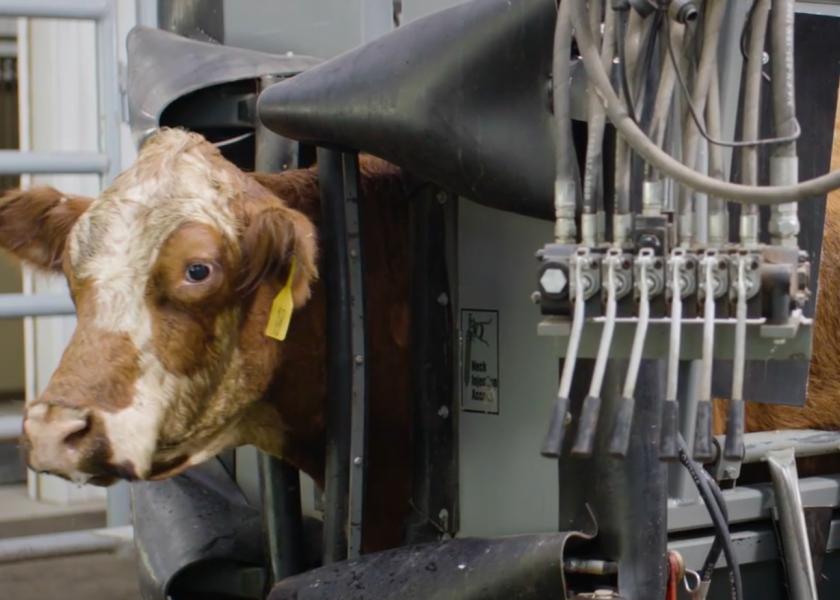Fret-Free Tips for More Parasite Coverage This Fall

According to Dr. Mark Alley, managing technical services veterinarian with Zoetis, getting more parasite coverage when deworming cattle is not only possible but should be fret free.
When you are deworming your cattle this fall with an oral drench dewormer, focus more on the amount of parasite control you get from the product and less about the dosage volume.
Don’t fret higher dosage volume.
A higher volume dose isn’t a bad thing for parasite control with oral drench. Benzimidazole products (e.g., Valbazen® Suspension) work best through prolonged exposure of parasites to “toxic” concentrations of dewormers.1,2 With a large rumen/abomasum, a higher volume dose is more likely to expose parasites to the active ingredient and help improve product efficacy.
Why you should fret about incomplete coverage.
With some benzimidazole oral drench products, you’re looking at about 25% to 47% less parasite and larval stage coverage.3 If you select certain oral drench products, you will also miss important control of liver flukes, both important species of tapeworms (Moniezia expansa and M. benedeni) and parasitic roundworms (Nematodirus spathiger).
These internal parasites are responsible for numerous problems, including suppressed appetite and reduced feed intake. Reduced feed intake leads to less nutrients, which can hinder an animal’s immune system and cause them to respond poorly to vaccines and disease challenges.
Here are more tips to help you get the most parasite control from your oral drench dewormer this fall:
- Collaborate with your veterinarian each year, so you have a solid deworming program that is best suited for your herd.
- Reduce feed prior to administration. This slows the rate of passage in the rumen, giving the product more time to work.1,2
- Weigh the animals so you are administering the most accurate dosage.
- Deworm based on your geographic location. Timing varies so you’ll need to work closely with your veterinarian.
Parasites are complicated and found in all forage situations. These tips can help improve your success this fall and remember to look for an oral drench product with the most coverage against damaging internal parasites.
For more information about time-tested parasite control options from Zoetis, including Valbazen and Dectomax®, talk to your veterinarian or local Zoetis representative and visit GetLessParasites.com.
Dectomax Injectable has a 35-day pre-slaughter withdrawal period. Dectomax Pour-On has a 45-day pre-slaughter withdrawal period. Do not use in female dairy cattle 20 months of age or older. Do not use in calves to be processed for veal. Dectomax has been developed specifically for cattle and swine. Use in dogs may result in fatalities.
Cattle must not be slaughtered within 27 days or sheep and goats within 7 days after the last treatment with Valbazen. Do not use in female dairy cattle of breeding age or lactating goats. Do not administer to female cattle during the first 45 days of pregnancy or for 45 days after removal of bulls.
Reference:
1 Benzimidazoles general information. Merck Veterinary Manual website. https://www.merckvetmanual.com/pharmacology/anthelmintics/benzimidazoles. Accessed July 30, 2018.
2 Moreno L, Echevarria F, Munoz F, Alvarez L, Sanchez-Bruni S, Lanusse C. Dose-dependent activity of albendazole against benzimidazole-resistant nematodes in sheep: relationship between pharmacokinetics and efficacy. Exp Parasit. 2004;106:150-157.
3 Comparison of approved label indications for Valbazen, SafeGuard suspension and Synanthic Suspension 22.5%.







